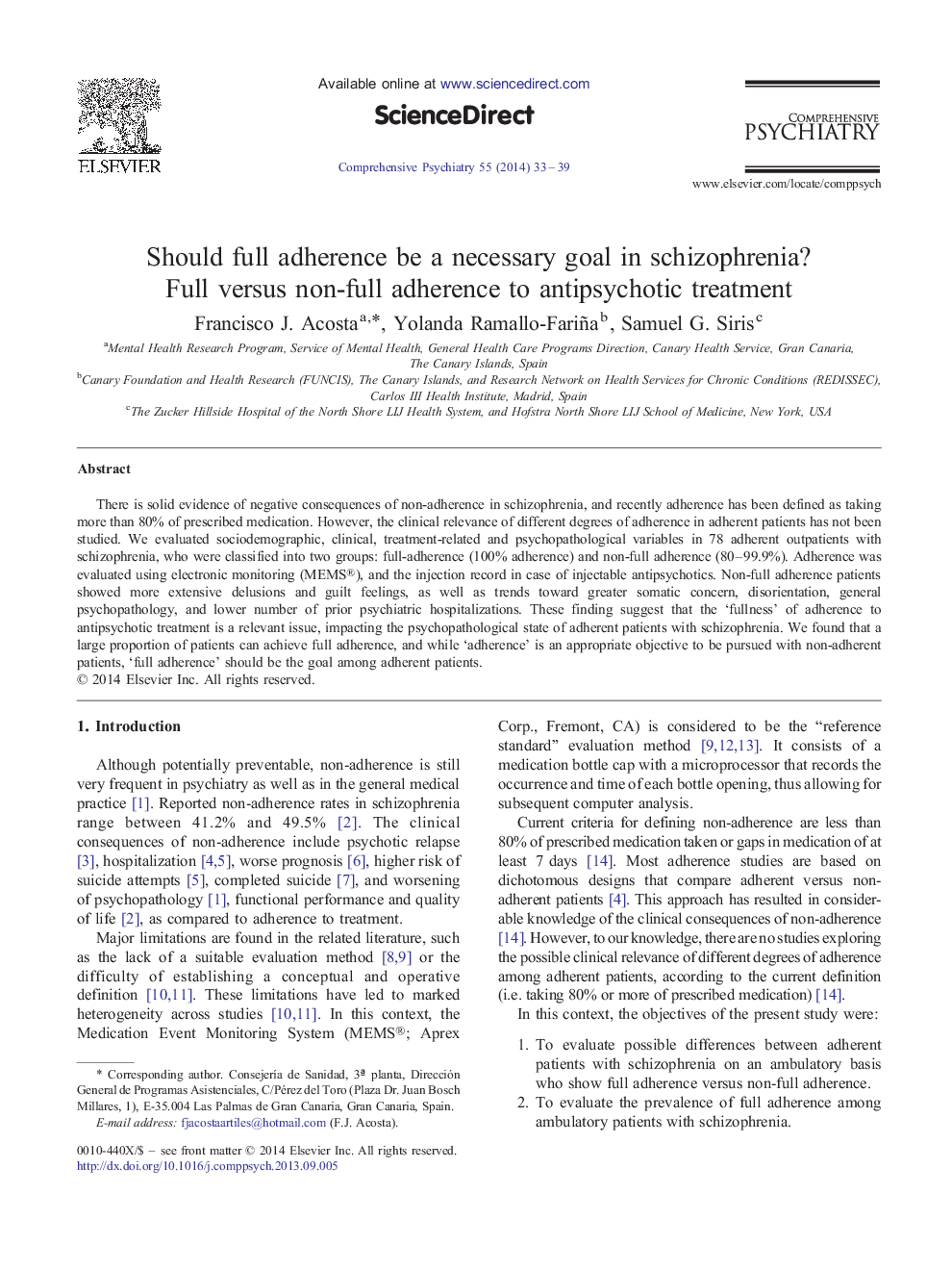| کد مقاله | کد نشریه | سال انتشار | مقاله انگلیسی | نسخه تمام متن |
|---|---|---|---|---|
| 317572 | 538187 | 2014 | 7 صفحه PDF | دانلود رایگان |
There is solid evidence of negative consequences of non-adherence in schizophrenia, and recently adherence has been defined as taking more than 80% of prescribed medication. However, the clinical relevance of different degrees of adherence in adherent patients has not been studied. We evaluated sociodemographic, clinical, treatment-related and psychopathological variables in 78 adherent outpatients with schizophrenia, who were classified into two groups: full-adherence (100% adherence) and non-full adherence (80–99.9%). Adherence was evaluated using electronic monitoring (MEMS®), and the injection record in case of injectable antipsychotics. Non-full adherence patients showed more extensive delusions and guilt feelings, as well as trends toward greater somatic concern, disorientation, general psychopathology, and lower number of prior psychiatric hospitalizations. These finding suggest that the ‘fullness’ of adherence to antipsychotic treatment is a relevant issue, impacting the psychopathological state of adherent patients with schizophrenia. We found that a large proportion of patients can achieve full adherence, and while ‘adherence’ is an appropriate objective to be pursued with non-adherent patients, ‘full adherence’ should be the goal among adherent patients.
Journal: Comprehensive Psychiatry - Volume 55, Issue 1, January 2014, Pages 33–39
